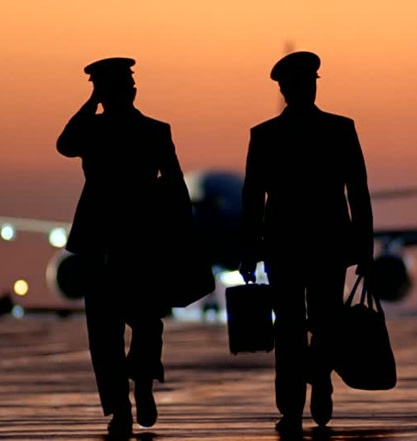Corporate Pilot Jobs
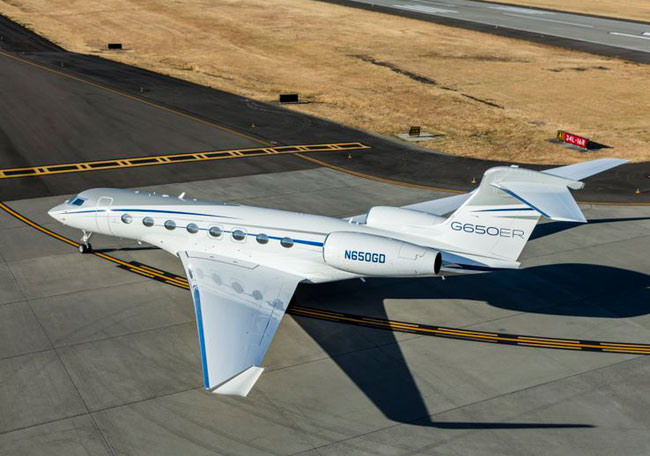
Corporate pilot job title encompasses a wide range of job types and opportunities. Corporate pilots can be found flying small single engine piston airplanes on short stints all the way up to converted airliners crossing the globe. Some corporate jets are among the most technologically advanced civilian airplanes.
Regardless of the type of operation where a Corporate Pilot is working there is likely a fair amount of variability to their day compared to working at an airline or flying cargo. Corporate pilots can expect variety in their duties, variety in destinations, and variety in scheduling.
Corporate pilots can work for private individuals, corporations, charter operators, and employers that operate airplanes under a fractional ownership program.
Work commitments vary, but most corporate pilots can expect to live on the road at least part of the time. Compensation has varied over the years but corporate pilots often have more consistent pay than what is found in other types of pilot jobs. Corporate pilots typically make less than airline pilots, but with a deepening pilot shortage pay is on an upward trend right now.
Description of the Job
Corporate Pilots are responsible for operating business aircraft on long, medium, or short haul flights. Airplanes flown in corporate aviation range in size from small single engine piston airplanes up to converted airliners. Corporate pilots are often qualified to fly multiple types of airplanes if their employer has a mixed fleet.
Most corporate jets are flown by a crew of two, a captain and a first officer. There are several types of corporate jets that can be flown by a single pilot. Many turboprops can also be flown single pilot. Some operators may still use two pilots where one may be required.
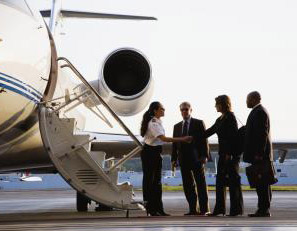
During the course of their job, corporate pilots are responsible for:
- Staying up to date on government regulations pertaining to their job.
- Attending regular training and testing.
- Ensuring their personal fitness for flight.
- Conducting a preflight weather check.
- Ensure the aircraft is within weight and balance and performance limits for the flight.
- Coordinate with air traffic control to operate at airports and within the airspace system.
- Monitor aircraft systems, navigation, fuel loads, and weather as the flight progresses.
- Adjust the flight to improve passenger comfort and experience. Communicate with passengers on the progress of the flight.
- Work with aircraft mechanics to ensure the airworthiness and legality of the airplane.
- Should an emergency or abnormal situation arise, manage the situation to ensure the safety of the flight.
Some corporate pilots will have additional duties such as:
- Cleaning and stocking airplane cabins with supplies and food/beverages for the passengers.
- Greet passengers and load baggage.
- Keep an open door to allow passengers access to the flight deck.
- Arrange or interface with ground transportation and accommodations.
Corporate Pilot Salary
Corporate pilot pay is varied both in the amount of compensation and in the way they are paid. Pilots are typically paid a salary in corporate flight departments.
Hourly or daily rates are common in charter operations. These pilots usually don’t have monthly minimum guarantees for hours worked.
When staying the night away from home corporate pilots are either paid per diem or have their expenses paid by their employers.
Most corporate pilots have benefits typical of a professional position. This includes health insurance, retirement plans, and paid time off. Most retirement plans are 401K.
Complete Overview of Corporate Pilot Pay >>
A Day in the Life of a Corporate Pilot
Is Corporate Flying for You?
Are you comfortable with technology? Most corporate airplanes use flight management systems, and advanced automatic flight control systems. Your other dealings with your employer will also be primarily through computer systems. Most corporate flight departments use tablets for manuals and navigation charts.
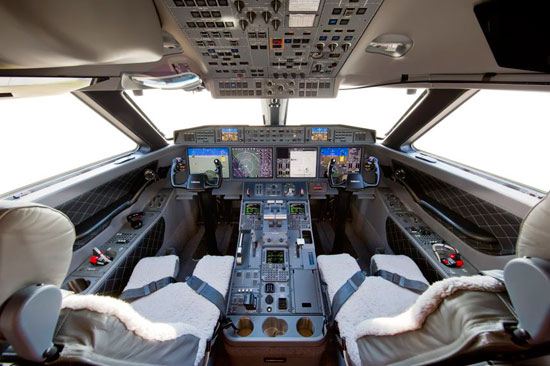
Are you good working with others? Most corporate pilots work as part of a multi-person flight crew. Your people skills will be important as you learn to work as a team to operate the airplane and get passengers to their destinations on time.
Janice K. Barden, founder of Aviation Personal International, said of working as a corporate pilot “If you’re a people person who likes having some say in your career, business aviation might be for you. This is a challenging career and I think you’ll work harder than you do at the airlines.”
Barden continued on the career that personal flexibility is a key aspect of working as a corporate pilot “If the crew is on the ground in Munich and the company suddenly sees a huge opportunity pop up in Africa, the airplane could well be headed for Johannesburg the very next day, rather than back home.”
As opposed to other pilot jobs, corporate pilots are a customer facing position and must focus on interacting with aircraft owners and operators. A great deal of their work is making sure the passenger’s needs and wishes are met.
Corporate Pilot Lifestyle
Corporate Jobs have very different schedules from the typical 9 to 5 job. You will spend stretches on the road, including important days such as holidays. Corporate Pilots have varied sleep schedules. Sometimes you will spend time with your crew while on layovers in other cities, but just as frequently you will be by yourself.
Some corporate positions have set times to work and set time off. This is especially common when working with fractional ownership companies. Many corporate pilots are on call is a significant portion of their life with limited guaranteed days free from work. Typically, the larger company a corporate pilot works for the higher the likelihood they will have set days off.
How to Become a Corporate Pilot
Getting to a desirable corporate pilot job is a similar initial path at pursuing a job with the airlines.
Cargo flying in part 135 operations, flight instructing, and flying for a regional airline is often seen as a career stepping stone to a corporate pilot position.
Flight Training
As with any other pilot position, would-be corporate pilots start their flight training with earning a commercial pilot license. Pilots will usually earn their flight instructor certificates as well as this is the most common first job for career oriented pilots.
Most corporate pilot positions require an Airline Transport Pilot (ATP) rating so gaining enough flight experience to earn this certificate will be necessary.
College Degree
Corporate pilot employers typically do not require a college degree as a minimum. However, to be competitive for positions pilots will typically need a bachelor’s degree.
Corporate Pilot Career Progression
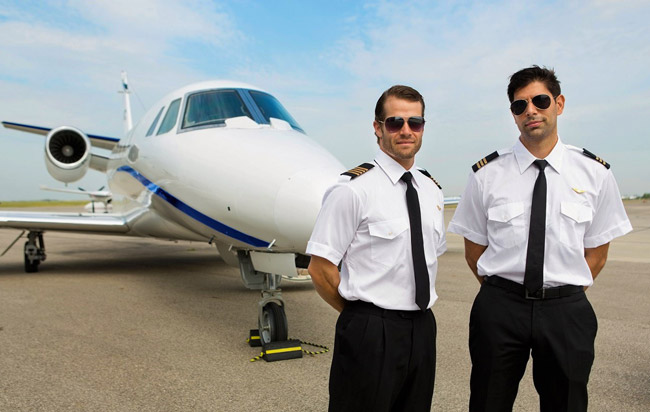
Cliff Holt, a lead Gulfstream captain for a large corporate jet operator said “Business aviation is a non-linear career path, uncertain due to economic factors, aircraft sales and acquisitions, and various unexpected factors. There is no general rule for the amount of time it will take to reach the left seat of their ‘dream aircraft. Progression is different in the corporate ranks.”
For most corporate pilots the top candidates are typically on a referral bases, and interviews often occur on an invite basis. “A lot of being a corporate pilot is personality, and a lot of it is skill,” says Trent Groth, a Gulfstream captain. “It also is knowing what jobs are available and having an industry recommendation. All of my jobs, once I was established, came from recommendations.”
The key getting into and advancing in corporate aviation is networking. Pilots starting off in the career often need to become an airport bum to come across and meet the right people.
Hiring Forecast
A projected combination of growth and mandatory retirements at the airlines will keep a positive hiring environment for all pilots.
An industry wide shortage of pilots means there is a lot more opportunity to find a corporate pilot job. Worldwide growth is causing a shortage of training resources which will slow attempts to address pilot shortages.
Industry forecasts predict a 3-4 percent average annual growth rate for new corporate aircraft sales over the next decade. This growth will lead to a direct increase in corporate pilot jobs.
“We’ve definitely felt the effects of the pilot shortage,” says Kimberly Herrell, the president of Schubach Aviation, an aircraft charter and management company located in Carlsbad, Calif. “It’s pretty much industry-wide now. There had been a lot of talk for a long time about how it was going to happen, and then it was here. With that said, we’ve still been able to find quality talent.”
Greg started his professional pilot journey in 2002 after graduating from Embry Riddle. Since that time he has accumulated over 8,000 hours working as a pilot. Greg’s professional experience includes flight instructing, animal tracking, backcountry flying, forest firefighting, passenger charter, part 135 cargo, flying for a regional airline, a national low cost airline, a legacy airline, and also working as a manager in charge of Part 135 and Part 121 training programs.

